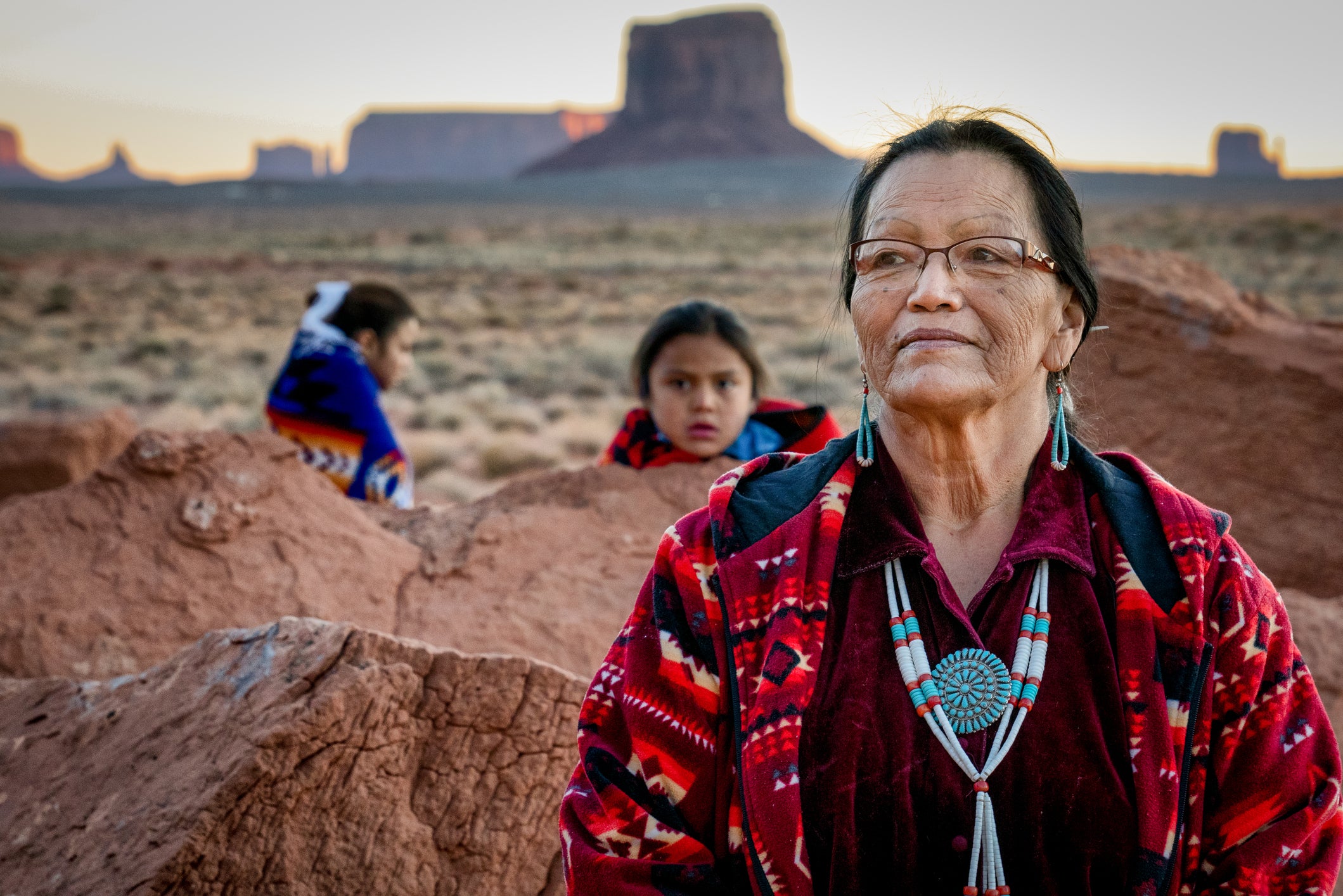
On March 11th, President Jonathan Nez and Vice President Myron Lizer of the Navajo Nation declared a Public Health State of Emergency. Though at the time there were no confirmed cases of COVID-19, the declaration was meant to protect and support the wellbeing of the community.
Since then, the coronavirus has devastated tribal nations, who’ve reported 1,197 confirmed cases and 44 deaths from the complications of the novel coronavirus. The Navajo Nation—approximately 175,000 members—has lost more people to the virus than 13 entire states. Measures to ensure residents are safe and informed about the transmission of the disease continue, along with regular public service announcements and checkpoints. Stay at home orders and curfews remain in effect, with the Navajo Police Department issuing 115 criminal nuisance violations since the order, the Navajo Times reports.
Throughout the country, 460 casinos have been shut down due to the coronavirus, but tribal casinos which employ more than 700,000 employees, the largest segment of the U.S. gaming industry, will be hit the hardest, according to Reuters. For many tribes, casinos have functioned as main sources of income and productivity. Now that those are closed, Native households scramble for money, resources and support.
It didn’t begin here, though. U.S. imperialism has created and/or perpetuated the health disparities, economic challenges, climate catastrophe and loss that Native communities have experienced over the last several hundred years.
In 1996, the largest class action lawsuit in history was led by Blackfeet organizer Elouise Cobell along with 300,000 supporters, which argued that the U.S. government had mismanaged Native land and funds. The findings ruled in their favor and Natives were awarded $3.4 billion dollars, which was to be redistributed to Native communities throughout the country, according to Colorado Public Radio.
Native tribes are currently following in that legacy by suing the Federal Government. The Trump Administration’s plan to allow for-profit Alaska Native corporations to access the $8 billion promised to tribal governments has caused an uproar. The complaint alleges, “The Secretary’s designation and treatment of these private corporations as Tribal governments reduces the funds available for allocation and distribution,” Politico reports.
According to the International Labour Organization (ILO), “Indigenous peoples are nearly 3 times as likely to be living in extreme poverty.” The lack of governmental support, policies and resources to combat the conditions that support Indigenous people earning roughly 18% less than the wider workforce contributes to health disparities and unfair treatment.
Amidst limited socioeconomic opportunities, the trauma of US imperialism and the underfunding of tribal healthcare systems, some Native community members have turned to drug and alcohol use as a mechanism to cope. This, coupled with the reality that there’s a water crisis in most Indigenous communities, with over 40% of homes in the Navajo Nation without running water, COVID-19 statistics are bound to go up.
While transmission numbers continue to increase, Native community members are organizing funds to provide needed supplies for elders and individuals most vulnerable to the coronavirus. Indian Country Today reports how important it is to ensure elders are protected from this virus and that folks need to stay in their homes in order to do so, but poverty is a major barrier in supporting folks staying at home.
Federal funding, rapid testing and intervention are necessary in combating the spread of COVID-19 in Native communities.
I echo what organizers said 24 years ago in their letters for support, “The price of this government mismanagement and government wrongdoing is being paid by some of the poorest citizens of this great country-by the First Americans whose assets and interests the federal government is required by law to protect. This deplorable, shameful government mistreatment of Native Americans must stop. The longer it is permitted to continue, the more expensive it will be to fix the system, and the greater the government’s liability will be. And the price goes up every day.”
—
ESSENCE is committed to bringing our audience the latest facts about COVID-19 (coronavirus). Our content team is closely monitoring the developing details surrounding the virus via official sources and health care experts, including the World Health Organization (WHO), the Centers for Disease Control and Prevention (CDC) and the Occupational Safety and Health Administration (OSHA). Please continue to refresh ESSENCE’s informational hub for updates on COVID-19, as well as for tips on taking care of yourselves, your families and your communities.





